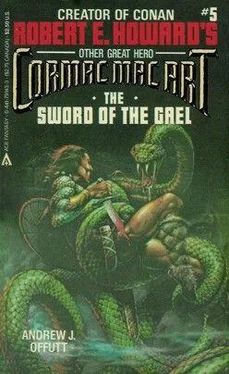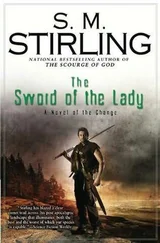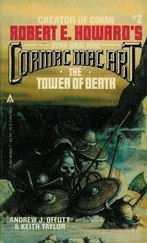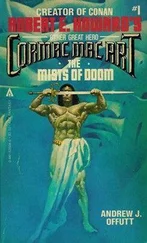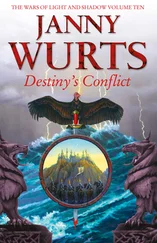Andrew Offutt - The Sword of the Gael
Здесь есть возможность читать онлайн «Andrew Offutt - The Sword of the Gael» весь текст электронной книги совершенно бесплатно (целиком полную версию без сокращений). В некоторых случаях можно слушать аудио, скачать через торрент в формате fb2 и присутствует краткое содержание. Жанр: Фэнтези, на английском языке. Описание произведения, (предисловие) а так же отзывы посетителей доступны на портале библиотеки ЛибКат.
- Название:The Sword of the Gael
- Автор:
- Жанр:
- Год:неизвестен
- ISBN:нет данных
- Рейтинг книги:3 / 5. Голосов: 1
-
Избранное:Добавить в избранное
- Отзывы:
-
Ваша оценка:
- 60
- 1
- 2
- 3
- 4
- 5
The Sword of the Gael: краткое содержание, описание и аннотация
Предлагаем к чтению аннотацию, описание, краткое содержание или предисловие (зависит от того, что написал сам автор книги «The Sword of the Gael»). Если вы не нашли необходимую информацию о книге — напишите в комментариях, мы постараемся отыскать её.
The Sword of the Gael — читать онлайн бесплатно полную книгу (весь текст) целиком
Ниже представлен текст книги, разбитый по страницам. Система сохранения места последней прочитанной страницы, позволяет с удобством читать онлайн бесплатно книгу «The Sword of the Gael», без необходимости каждый раз заново искать на чём Вы остановились. Поставьте закладку, и сможете в любой момент перейти на страницу, на которой закончили чтение.
Интервал:
Закладка:
Into it could have been fitted the house and entire grounds of Gol, King of Dalriada on the coast of Alba, in whose service Cormac had borne sword until the king did treachery on his fellow Gael, for kings must see to their daughters.
Supported by a double row of lofty columns thrice the thickness of Cormac’s body or twice Wulfhere’s the room was; the length of two men separated the pillars of that colonnade, and in each row there were five and twenty. Round about them the walls were etched and carved with decorative swirlings and scrollwork and stylized representations of the sea, and ships on its breast.
In addition the walls told a story in pictures scratched into their surface with fine tools, and Cormac walked to read it.
Men had come here in great ships that could have carried within them three or four such as Wolfsail , strong and mighty men, bronze of body and them in clothing and armour that were both strange and rich.
Across the broad sea we came , Cormac thought, and shuddered. And to this place, and here we met the fathers and grandfathers of the serpent-people who ruled the world, above and within, ere Kull wrested Valusia’s crown from Borna. And there was war upon us, and I struck and struck and slew and was sore injured…
The wall pictures showed those mighty serpents, prodigiously large and surely exaggerated-but Cormac mac Art knew without knowing how he knew that this wall was history, and without embellishment. The sons of men met in battle those who had preceded them and were loath to give up the world they had so long ruled. There was a great war, and the golden skinned men of Atlantis prevailed.
Then did we set about the erection of this great keep, as a monument to Man, with all its corridors straight and broad that there might be no resemblance to the tracks and lairs of the serpents.
Cormac blinked. He jerked his head from side to side, looked up and around. We? I must be losing what mind I have! What dark sorcery sends into my brain these memories that cannot be memories, for full a thousand lifetimes separate me from Atlantis!
But… was I here? Have I been here, in each of those lifetimes, ever the warrior, ever slaying so that I must comeback, and back, and…
Again he shook his head, sharply and more than once. And he was again Cormac, son of Art of Connacht in Eirrin, and nothing crowded his head but the present, and his own memories of this short lifetime-memories that were entirely enough, and bad enough.
He studied the wall, biting his lower lip to make sure he was not distracted into some dreamish world he could not explain and thus resisted with all his sanity.
Unless he missed his guess, those islands the engravings showed the ancients exploring were Britain, and beside it Eirrin, narrow to the north, and above it Alba that the Romans called Caledonia. Strange beasts had roamed their soils then, Cormac saw, and serpents too. He smiled a little, for surely this triumphant etching showed why it was that green Eirrin was free of serpents but contained only toads and a few trifling lizards: the ancient sea-roamers and palace-builders had slain the serpents on that soil, every one.
And I was with them…
No!
A new feeling came over him, and he liked it no better than the remembering that was surely false. As though sorcerously drawn out, his finger went forth to touch a certain portion of the isle he thought must be Eirrin. Connacht, western home of the Shannon’s source. Green Connacht with its long ragged hills that were blue in the distance, its fens and plains and slopes and its bogs. Connacht of Eirrin; here it was that the son of Art had been born, and raised, until…
Cormac turned away from the wall and the story it told.
No longer was he interested in that tale of ancient triumph, or either in food, or the companionship of his Dane-born fellows. If the wall there past the throne showed what had happened to take away these great seafarers and builders, long long centuries agone, he was not interested. No matter what they had recorded, and builded here, it was exiles they’d been. So too was Cormac mac Art exile, and it came down on him now, in the great hall of what must have been his ancestors of a thousand or ten thousand years ago. What matter how long?
Eirrin.
Quern and nuts up to the knees at every Behl-smiling harvest , he thought helplessly, with his eyes full of pain. And the good trees bending with the weight of their fruit, and the Bueis and the Boyne full of salmon and trout, and the sun of Behl shining on his own land with ever smiling brightness and favour.
Before his eyes he saw the face of his father. And then again, but changed, for these were the blue eyes Cormac had last seen, and them fixed in death. The son of Eirrin gritted his teeth, for it was no natural death his father had got, and his dangerously-named son just at the age of manhood at the time, fourteen winters and thirteen summers old…
Cormac swallowed. He flicked his gaze to his fellows. Wulfhere was staring at him.
“Has it come upon you again, old friend?”
Cormac stared at him.
“The remembering?”
Cormac’s face was expressionless. “We be vulnerable as sea-dogs in their mating season,” he said gruffly. “I’m for scaling one of the cliffs outside-the westward looked to have handholds enow-and keeping a seaward watch. It’s a bow and two arrows I’ll be taking, for a warning if need be.”
“Cormac-”
But the Gael, his eyes bleak and his shoulders seeming somehow less broad and confidently set, was leaving them. He said no more, nor did he look back…
“There be an enchantment on that man,” Wulfhere said, and he heaved a sigh. “Some say we have trod this world before, all of us. Cormac knows it.”
“Aye.” Ivarr nodded. “Know you what he dreams of, when he goes away thus, and him still with us?”
“A yesterday he cannot possibly know.”
“And-”
“Eirrin.”
“We shall lose his sword and companionship some day,” Hakon said, staring fixedly as he ruminated, for it came not easily upon him, the thinking.
“Aye, and his counsel, that crafty calculating warrior’s brain of his!”
“And it’s not to sword, or arrow or spear we’ll lose Cormac mac Art.”
Again Wulfhere nodded, and again he uttered the single word: “Eirrin.”
Chapter Three: Vikings!
Never until now have I met,
Since first I saw sun’s light,
Thy like in deeds of battle-
Never in my life, O Cormac!
– from “Cormac the Gael”
by Ceann Ruadh, the “Minstrel-king”
As Cormac mac Art ascended, the sun went down. The Gael climbed in the dusk-light with great care, his buskins thonged to his belt. He completed his scaling of that looming natural wall of brooding stone in the gloom of last dusk.
From the summit, a long and nigh flat mesa, he watched, hardly seeing, while the sun died. The fat orange half-disk squatted on the far reaches of the ocean. Crimson fingers of its light came reaching out along the waters, seeming to bloody the surface, as if the sun were desperately trying to hold on with breaking nails. Failing, it slid off the edge of the world, which was plunged into darkness. The million eyes of the night sky appeared, presided over by the moon’s cold light.
Cormac sat. He was high above the hidden valley now and above even the highest tower of the castle that should not have been there. He re-laced his buskins. The son of Art of Connacht thought: about Eirrin, about Connacht where he was born and Leinster where he’d taken service, and about Dalriada in Alba where he had also served at arms, before the years of outlaw raiding along those same coasts. “Riever” was the word of his people; “Scoti” was the Romans’ word that meant the same, and before they had withdrawn from their Briton sword-land they had commenced calling Alba “Scot-land” as well as Caledonia.
Читать дальшеИнтервал:
Закладка:
Похожие книги на «The Sword of the Gael»
Представляем Вашему вниманию похожие книги на «The Sword of the Gael» списком для выбора. Мы отобрали схожую по названию и смыслу литературу в надежде предоставить читателям больше вариантов отыскать новые, интересные, ещё непрочитанные произведения.
Обсуждение, отзывы о книге «The Sword of the Gael» и просто собственные мнения читателей. Оставьте ваши комментарии, напишите, что Вы думаете о произведении, его смысле или главных героях. Укажите что конкретно понравилось, а что нет, и почему Вы так считаете.
